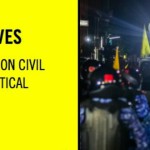The human rights situation has deteriorated in the Maldives over the past four years, says Amnesty International in its report to the UN Human Rights Council.
In its submission for the country’s second Universal Periodic Review (UPR) titled ‘Republic of Maldives – Ignoring Human Rights Obligations’, the NGO accuses the government of having failed to implement recommendations made in 2011.
“Furthermore, it has effectively been undermining human rights protection by failing to strengthen the independent institutions of the state including the judiciary, which needs urgent reform.”
The report – made public for the first time last week – notes the “emergence of vigilante religious groups”, “fundamental flaws” within the judicial system, and the “feared abduction” of Minivan News journalist Ahmed Rilwan.
It also accuses the government of not defending the independence of the Human Rights Commission of Maldives (HRCM), which is currently being prosecuted by the Supreme Court as a result of its own submission to the UPR.
The UPR is a state-driven process that reviews the human rights records of all 193 UN member states every four years, based on submissions by the government, the UN, NGOs, and national human rights commissions.
A mid-term assessment of the Maldives’ conformity with the 2011 recommendations found that it had “fully implemented” only three of the 145 recommendations – with 12 recommendations “partially implemented”, and 33 “not implemented”, 96 recommendations receiving “no response”.
Abductions and impunity
The report also observes the lack of prosecutions for the perpetrators of a series of abductions reported last year, as well as a failure to bring the investigation into Rilwan’s disappearance to a conclusion.
“Impunity for human rights violations, especially for torture and other ill-treatment and for unnecessary or excessive use of force by police against demonstrators has been a persistent failure of the government,” reads the report.
Amnesty highlights the non-disclosure of information regarding alleged excessive force during the raid on the Anbaraa music festival in April last year, as well as the lack of prosecutions for acts of police brutality carried out on February 8, 2012.
Attorney General Mohamed Anil told the Majlis last August that the cases of five officers were ongoing. The Commonwealth-led Commission of National Inquiry described an “urgent need” for accountability and sanctions more than two years ago.
The report accuses the government of failing to protect the rights of freedom of expression and conscience with regards to the murder of MP Dr Afrasheem Ali, the brutal attacks on blogger Ismail Hilath Rasheed and journalist Ibrahim ‘Asward’ Waheed.
“These attacks took a new form in June 2014 when a vigilante religious group kidnapped several young men, held them for hours, ill-treated them and warned them not to promote ‘atheism’.”
“None of the kidnappers have been brought to justice, even though the identities of some of them are allegedly known to the victims.”
Victims of the attacks have identified four individuals familiar with police in two abduction incidents last June, and another in November. The victims were accosted in order to obtain log-in details for online groups in which religion and gang activity were being openly discussed.
The report went on to recommend a moratorium on flogging – which Amnesty regards as “inhumane” and discriminatory in practice, and the death penalty, which the current government has pledged to reintroduce.
“Amnesty International is disappointed that the Maldives did not accept recommendations to remove restrictions in law and practice on freedom of thought, conscience and religion,” it continued.
Judiciary
The report reserves significant space to highlight deficiencies within the judicial system, arguing that a lack of judicial independence and impartiality continued to “undermine fair trials”.
“Since the last UPR, the government has taken no visible action to ensure that standards of judicial independence and impartiality are upheld and monitored,” said Amnesty.
Most importantly, states the report, there has been no action to strengthen the Judicial Services Commission (JSC).
“There is a perception in the Maldives, frequently voiced by judicial and government authorities to Amnesty International, that the principle of judicial independence would not be upheld if the government were to scrutinize the conduct of the judiciary.”
After repeated investigations into the alleged appearance of Justice Ali Hameed in a series of sex tapes in 2013 failed to find adequate evidence for disciplinary proceedings, Hameed was himself appointed president of the commission earlier this month.
“While Amnesty International would oppose interference by the executive in the affairs of the judiciary, it considers that statutory state organs entrusted with maintaining judicial accountability, such as the JSC, should monitor and take action against any breaches of impartiality,” read the UPR submission.
The JSC came in for particular criticism for its role in the dismissal of two Supreme Court judges last month. In a decision slammed for its lack of transparency, the commission found Chief Justice Ahmed Faiz and Justice Muthasin Adnan unfit to sit on the bench.
After Majlis members voted through the JSC’s recommendations, local and international groups expressed concern over the decision’s impact on judicial independence.
After the HRCM’s UPR report – criticising the centralisation of judicial power in the Supreme Court – ‘suo moto’ proceedings were initiated against it last September, prompting Amnesty to call for the commission’s independence to be guaranteed.
Related to this story
Maldives “fully implements” three of UN’s 145 human rights recommendations: UPR mid-term assessment
Women’s rights and treatment of migrant workers needs improvement: UN review
Supreme Court initiates suo moto proceedings against Human Rights Commission
 (0)Dislikes
(0)Dislikes (0)
(0)




Worsening isn't an accurate description.
The forceful herding of the population to live the fantasies of the shepherds' life, stripping them of logical reasoning, intimidating them with hellfire stories, and alienation from community, is by far the worst raping of Maldivians' right of freedom.
That has been going on through the recent history. Politicians tweak this thread whenever they want a catalyst, to rev up their rants. It works.